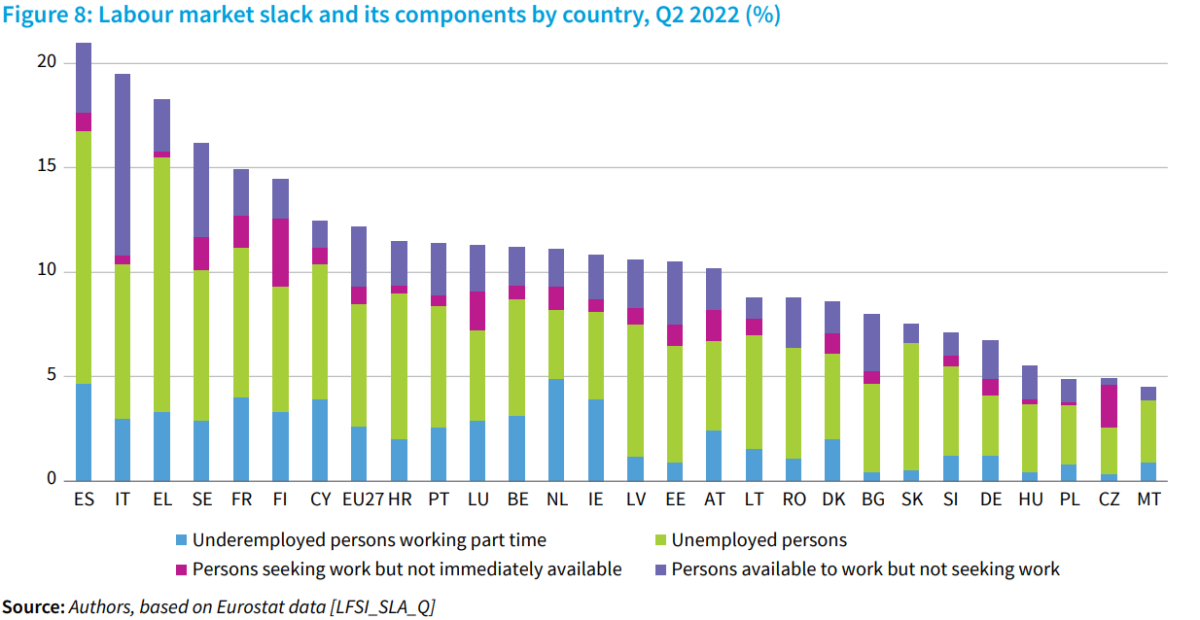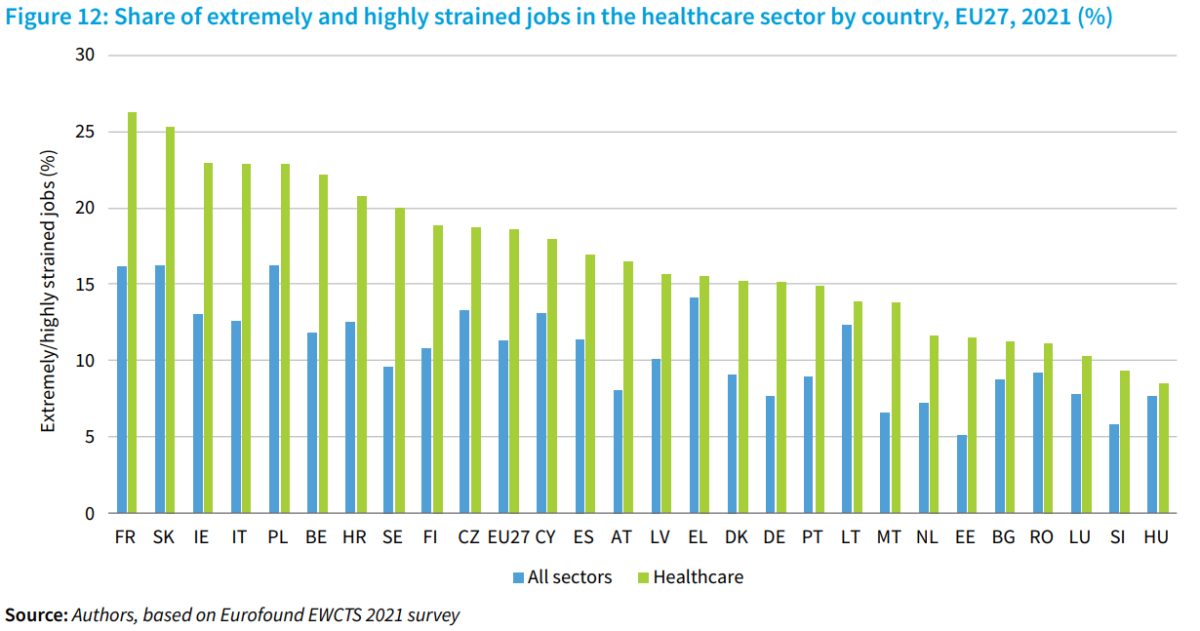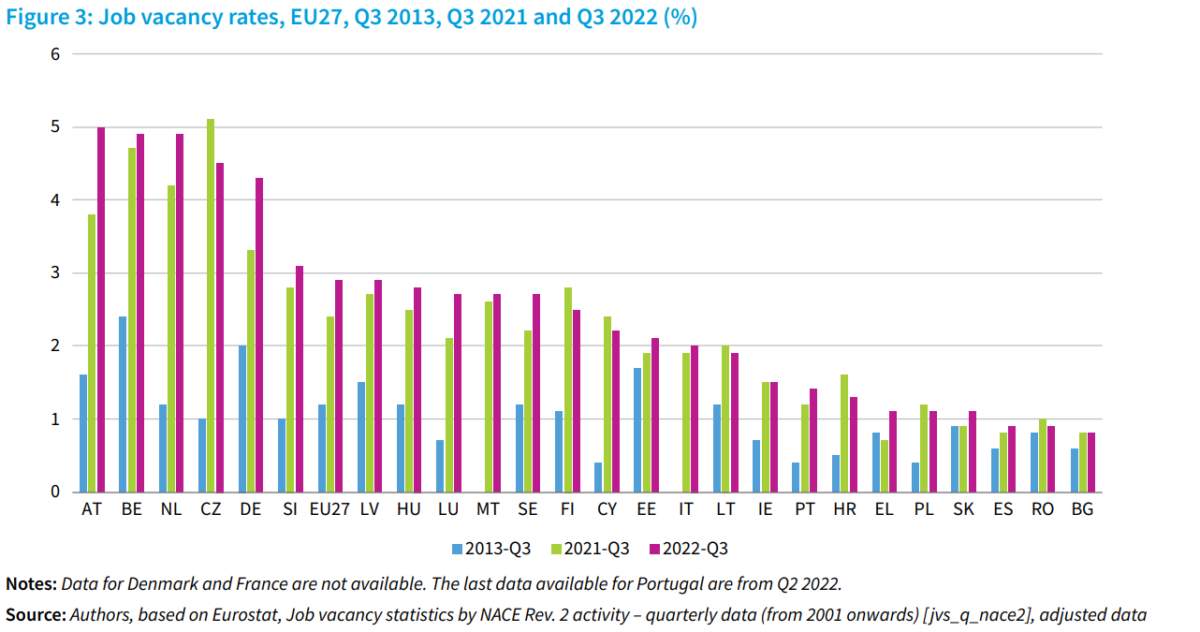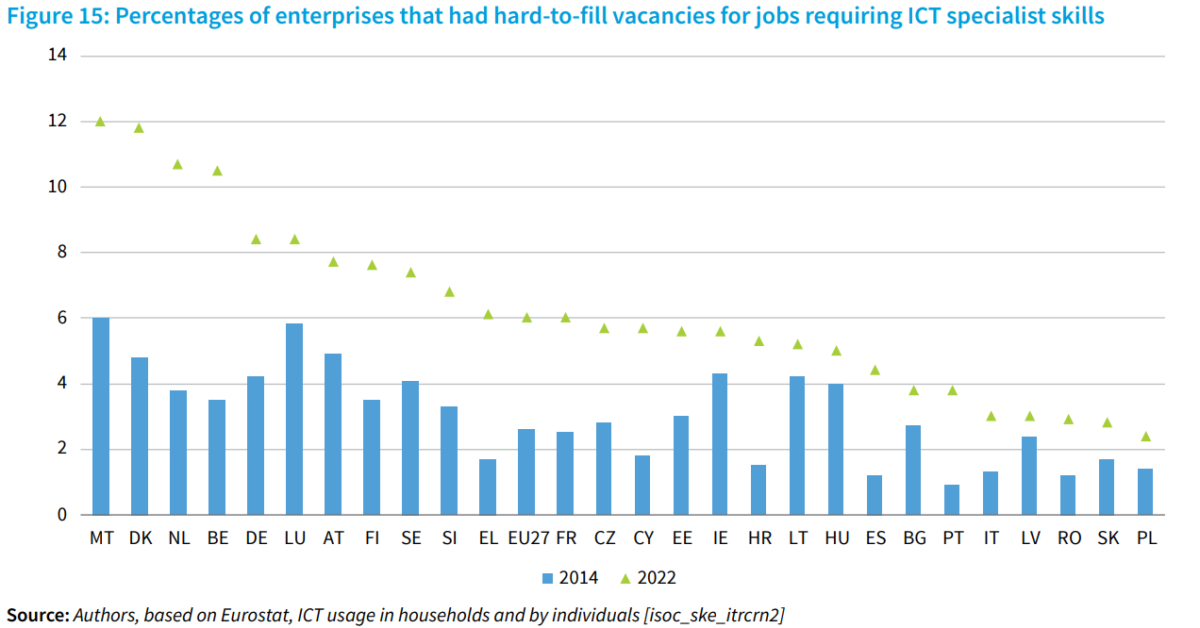Labour shortages in Malta, but also across Europe, have become increasingly evident, especially following the economic recovery from the COVID-19 pandemic. A number of steps need to be taken to address the shortage, and focusing on skills alone won’t cut it, according to the European Foundation for the Improvement of Living and Working Conditions (Eurofound).
Malta’s labour shortage has been endemic for a number of years. During the pandemic there was an exodus of foreign workers who were active in the shadow economy, and once the economy kickstarted again, the shortage reached new heights with fewer hands on deck available to fill the gaps.
Persistent levels of labour shortage limit production and service delivery in various sectors causing growing concerns for employers.
According to the report, relative to the rest of the European Union, Malta has the smallest amount of labour market slack. The slack is mostly composed of unemployed persons, followed by small section of underemployed persons working part-time and an even smaller section of persons available to work but not seeking employment.

The study found that labour shortages were particularly prevalent in sectors with challenging working conditions. Solutions to the problem include improving job quality factors such as pay and autonomy.
However, as was recently argued by Joe Farrugia, director of the Malta Employer’s Association, increasing wages cannot be seen as a silver bullet.
When taking a look at the healthcare sector, the study found that low levels of investment coupled with the impact of the pandemic and a gender-segregated labour market have contributed to the shortage of workers in a sector where the EU’s ageing population and workforce is also set to exacerbate these shortages further in the coming years.
In Malta, the strain in the healthcare sector is roughly twice as much as it is in other sectors of the economy.

At the end of 2022, the overall job vacancy in the EU was 2.8 per cent, ranging from 0.8 per cent in Romania and Bulgaria, to 4.6 per cent in Austria.
In Malta the job vacancy rate is slowly increasing but is roughly at the EU average.

One of the challenges with filing job vacancies is the lack of skills. This is most prevalent in occupations requiring specialist ICT competencies. Six per cent of European companies found it difficult to fill in such positions, an increase of 3.5 per cent compared to 2014.
Maltese enterprises struggled the most relative to the rest of the EU, with the number of companies struggling to fill in ICT specialist vacancies doubling from six per cent in 2014 to roughly 12 per cent in 2022.

The report also noted that greater efforts are required to overcome stereotyping or attitudinal barriers among pupils and parents, students, workers and employers to occupations and sectors as they prevent entry to certain training and career paths, recruitment of specific groups or take-up of training by women in male dominated professions and vice versa.
“‘This research shows the importance of job quality and working conditions in addressing labour shortages in Europe. In addition, targeting underutilised groups in the labour market is vital, as is providing holistic support that addresses factors preventing labour market participation, such as health issues and lack of access to affordable care, as well as training and work experience needs,” said Eurofound executive director, Ivailo Kalfin.
“Going forward, this requires the close collaboration of social partners and other relevant bodies in the context of broader measures, such as work-life balance policies and tax and benefit incentives.”
According to Eurofound, measures to address the issues must be prioritised to not only help businesses meet production targets and deliver quality services but also ease work intensification for the most affected sectors.
It noted that measures targeting underutilised groups in the labour market need to provide holistic support that addresses factors preventing labour market participation, such as health issues and lack of access to affordable care, as well as training and work experience needs. This requires the close collaboration of social partners and other relevant bodies in the context of broader measures, such as work–life balance policies and tax and benefit incentives.
Employers take umbrage at video promoting public sector’s flexible work arrangements
The video outlines a range of flexibility options available to public sector employees
Malta’s inflation eases to 2.5% in January as food prices remain main driver
While overall inflation continued to moderate at the start of the year, price pressures remain uneven across categories
Final call for food and beverage manufacturers to exhibit at SIAL Paris
SIAL Paris is one of the world’s leading international food and beverage exhibitions






